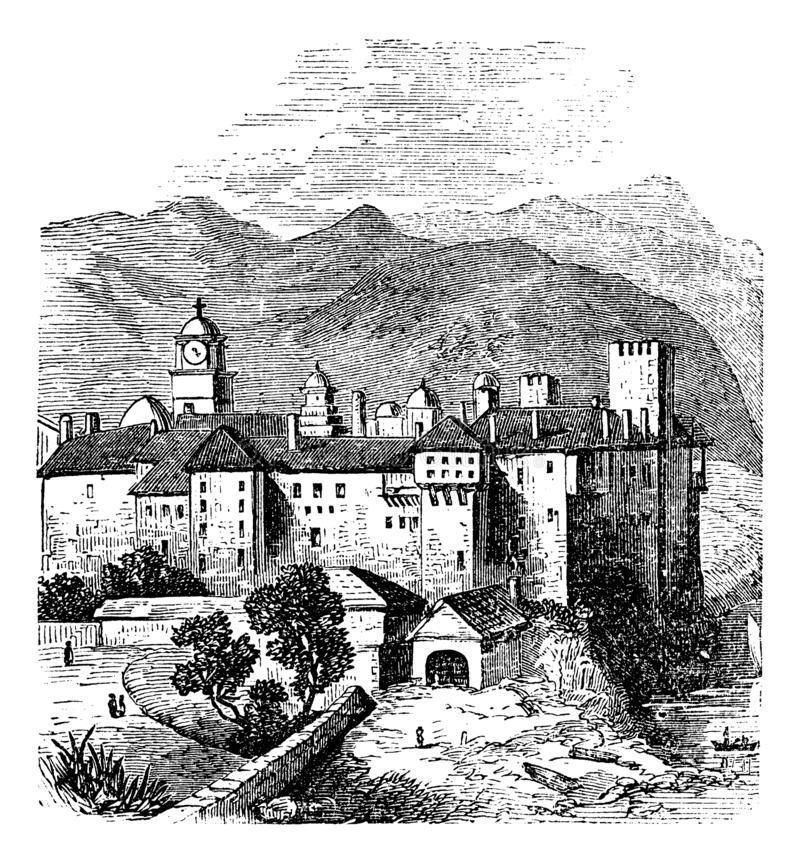Acquiring new knowledge from ancient Christian sources
Mission:
Praxis Research Institute was established in Massachusetts in 1992 as a registered not-for-profit research and educational organization. Its mission is to study and pass on the inner, spiritual teachings of Christianity. Though largely unknown in the West, this tradition dates back to the Gospels and the writings of the early Church Fathers, and is still in practice in monastic communities, in particular Mount Athos in Greece, where Robin Amis, the late founder of Praxis, was a regular visitor. During one of his early pilgrimages to the Holy Mountain, he was given the charge by renowned elder, Father Paisios, recently canonized as Saint Paisios, to convey the ‘truth of the heart’ to the English-speaking world. This ‘truth’ is described in Mr. Amis’ books, A Different Christianity and Views from Mount Athos, as well as in other works published by Praxis and its affiliate, Pleroma Publishing Ltd. These include the Gnosis series by Boris Mouravieff, works on prayer and stillness (hesychia) by Sts. Theophan the Recluse and Gregory Palamas, and writings on the 4th Way by P.D. Ouspensky.
Principles:
Praxis affirms that every human being comes into the world with both a psychological-physical nature and a spiritual nature. The former consists of physical, emotional, and intellectual capacities which can be developed through formal education and ordinary activities in the world. The latter consists of higher faculties that, once purified, make it possible to connect human and divine. In Greek, these faculties are nous, the power of attention, discrimination, and recognition, which is capable of higher forms of consciousness including self-awareness and direct knowledge of God; and kardia, the heart (including the inmost heart), which is the seat of conscience, unconditional love, empathy, and unity with God.
Praxis also holds that each person has the potential to develop themselves spiritually, initially through self-knowledge and eventually leading to self-mastery. This involves harmonizing and integrating our psychological-physical attributes with our higher faculties, a process that requires grace and our own effort. This process is described as bringing the nous into the kardia (or in more familiar terms, the mind into the heart) to make oneself receptive to communion with the divine. Again, we must purify our lower nature for this communion to be possible.
In a modern description of this process, Boris Mouravieff says that we must master the ‘little ‘I’s,’ the constantly changing parts of our personality, each of which normally engages our thoughts, feelings, and sensory-physical functions to satisfy its own needs and interests. We must instead put the intellect, emotions, and body in the service of the ‘Real I’, the stable point of self-awareness within us. The Real I alone is capable of objectively perceiving the changing ‘little ‘I’s’ and directing the psychological-physical functions toward the achievement of a higher aim. This inversion of authority requires both inner-spiritual efforts and conscious action in the outside world. We find these efforts and action described in the Gospel as ‘seeking first the kingdom of God’, 'loving thy neighbor as thyself', ‘turning the other cheek,’ etc.
Practices:
Methods of spiritual development are derived from Eastern Orthodox monasticism, but are applied to life in the world and are not restricted to the Orthodox or even to practicing Christians. They include:
- Intellectual: critical study of spiritual teachings; constatation, perceiving without judgment; attention, both to the activity at hand and to oneself, called ‘double-attention’ or ‘circular attention,’ a Western form of ‘mindfulness.’
- Emotional: recognition and moderation of ‘negative emotions’ and other energy waste; conscious consideration of others; prayer, especially the Jesus Prayer, or Prayer of the Heart; connecting with others making similar efforts; remembering experiences of higher states.
- Physical: self-control; perceiving and refining posture; developing motor skills and craftsmanship for example in visual arts, music, theatre, or dance; forming habits that sustain attentiveness; bearing difficulty.
While these teachings are deeply rooted in Christianity, the truths they represent are universal and can be found at the core of all wisdom traditions. Therefore, readers of Praxis material will find reference to, or hear echoes from Eastern practices of Zen, Sufism, and Yoga, as well as Greek philosophy and Judaism. Praxis teachings are also closely allied with the more contemporary spiritual teachings called ‘The Fourth Way.’ As defined in the 20th century by G.I. Gurdjieff, P.D. Ouspensky, and later, Boris Mouravieff, the Fourth Way brings teachings and practices from monastic traditions to people living in the world today. Further, while the classic paths or ‘ways’ focus spiritual development primarily in one domain, either physical (e.g., through asceticism or martial arts), emotional (e.g., through prayer or artistic pursuits), or intellectual (e.g., systems like Kabbala or the Yoga Sutras), Fourth Way teachings encompass all three facets of the human being fostering a more holistic and harmonious development.

